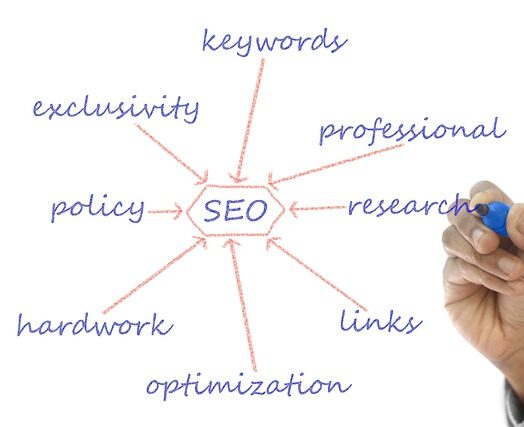Search Engine Optimization (SEO)
Everyone needs to get high ranking of search engines or search giants, to rank their website or product high, so they can get massive audience. This is often the organic approach. Being useful, however, this has lead to a giant competition. The search giants have developed several complicated algorithms to judge the competition and produce the most effective results for the searches, i.e. the user gets precisely what he/she is searching for. Google, for example, had 200+ criteria to rank an internet site, provided that the website meets all the ranking factors and is way higher than different competitive websites, it’ll rank on high SERP. This is often a race that each contender or website needs to win and retain that position.
Search Engine Optimization (SEO) is the practise of optimising a website or online content to increase the quantity and quality of organic traffic from search engines, such as Google, Bing, and Yahoo. Improved website or web page visibility in search engine results pages (SERPs) for pertinent queries or keywords is the goal of SEO.
Several strategies are used in SEO, including technical optimisation (increasing site speed and mobile responsiveness), off-page optimisation (generating high-quality backlinks from other websites), on-page optimisation (optimising content and HTML tags), and content creation (such as creating high-quality, informative content that targets specific keywords).
Making a website or web page more visible and reachable is the ultimate purpose of SEO.
